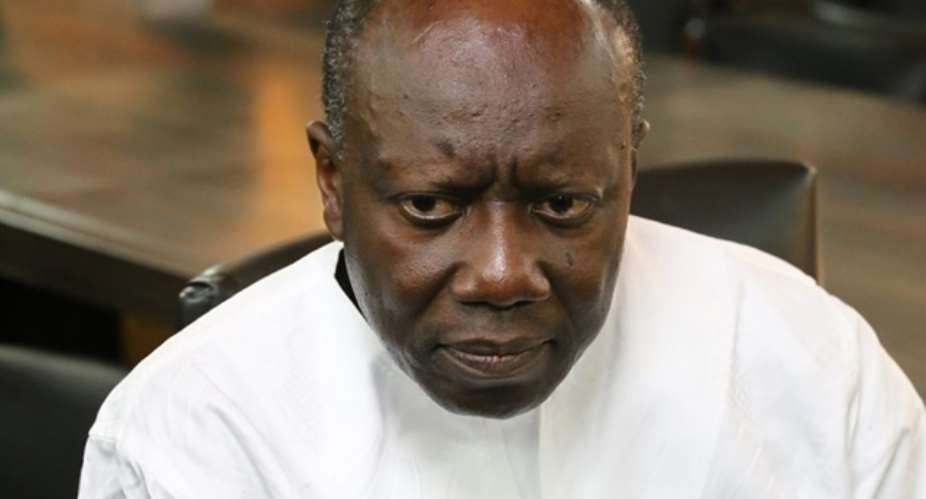I cannot hold my deep urge to speak up on the current 2.25 B USD bond issue. I am not interested in the conflict of interest issues and its associated politics. My interest is purely on the false education those who by virtue of their qualifications and profession are supposed to know better but are poisoning the whole country with falsehood.
I could not believe my ears when I listened to our Hon. Former Dep. Finance minister with ACCA credentials speak in Parliament right after Hon Ken Ofori Atta made his statement on the 2.25B USD bond issue.
Two of the questions Hon Ato Forson raised were questions that in my opinion are very basic for even an undergraduate Finance student to understand! Issuance Date of a bond The direct comparison of long term interest rate to short term rate Issuance Date of Bonds (All fixed income securities) There is absolutely no doubt that the issuance date for all fixed income securities (and for that matter Bonds, T Bills etc ) is the Settlement Date that is the day that money exchange hands.
For those of you who have purchased TBill before, you will realize that the day your TBill is issued is the date that money was taken from your account (settlement date) and not the day that you filled the form at the bank to express the intention to purchase the TBill. In the case of the 2.25B USD Bond, the intention to purchase the bond was finalized on 31/03/17 and payment made on 03/04/17 (settlement date).
I don’t see how our ACCA Holder former Finance Minister would argue on this. Direct comparison of long term interest rate to short term rate How on earth can anybody make a direct comparison between short term interest rate and long term rate?! There is absolutely no way you can directly compare long term interest rate to short term one.
There are 5 main components that is used to build the long term interest rate of which the short term rate is even one (Real risk free interest rate (usually the short term Tbill rate), Expected inflation, Default risk premium, Liquidity premium and maturity premium). So if a mere calculation of the long term rate begins from the short term risk free interest rate, how can you pick the 2 rates (short and long term) and make comparison that it is not justifiable for the long term rate to be higher than the current short term rate?! Infact the downward trend of our TBill rate is a direct result of the decision by this government to stop/reduce borrowing short term loans Have you forgotten how long TBill sold at 23% in Ghana? if we are having a bond which interest rate is guaranteed at 19% for 15 years, how can you compare it with a short term interest rate that did stay above 20% for more than 4 years between June 2012 to Nov 2016.
Let me also state that the decision to pay off short term bills will ensure that interest rate comes down steadily. Ghanaians should expect to see the reoccurrence of those days when Banks begged customers to come for Loan.
To understand why, it is simply because Government is no longer in a rush to borrow short term loans and this will force people to engage in business with their money that will bring about growth.





 Akufo-Addo commissions Phase II of Kaleo solar power plant
Akufo-Addo commissions Phase II of Kaleo solar power plant
 NDC panics over Bawumia’s visit to Pope Francis
NDC panics over Bawumia’s visit to Pope Francis
 EC blasts Mahama over “false” claims on recruitment of Returning Officers
EC blasts Mahama over “false” claims on recruitment of Returning Officers
 Lands Minister gives ultimatum to Future Global Resources to revamp Prestea/Bogo...
Lands Minister gives ultimatum to Future Global Resources to revamp Prestea/Bogo...
 Wa Naa appeals to Akufo-Addo to audit state lands in Wa
Wa Naa appeals to Akufo-Addo to audit state lands in Wa
 Prof Opoku-Agyemang misunderstood Bawumia’s ‘driver mate’ analogy – Miracles Abo...
Prof Opoku-Agyemang misunderstood Bawumia’s ‘driver mate’ analogy – Miracles Abo...
 EU confident Ghana will not sign Anti-LGBTQI Bill
EU confident Ghana will not sign Anti-LGBTQI Bill
 Suspend implementation of Planting for Food and Jobs for 2024 - Stakeholders
Suspend implementation of Planting for Food and Jobs for 2024 - Stakeholders
 Tema West Municipal Assembly gets Ghana's First Female Aircraft Marshaller as ne...
Tema West Municipal Assembly gets Ghana's First Female Aircraft Marshaller as ne...
 Dumsor is affecting us double, release timetable – Disability Federation to ECG
Dumsor is affecting us double, release timetable – Disability Federation to ECG
